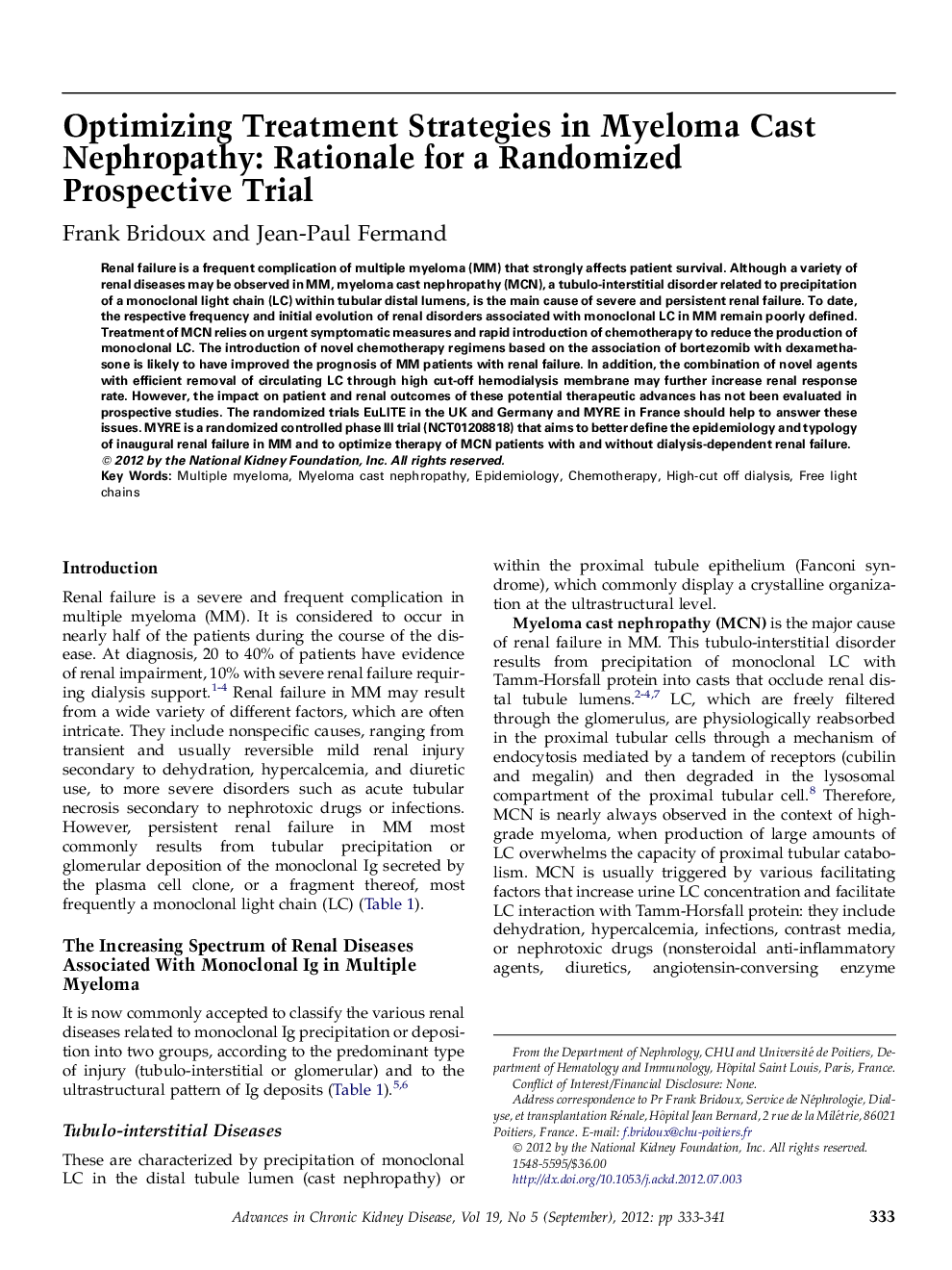| Article ID | Journal | Published Year | Pages | File Type |
|---|---|---|---|---|
| 3846803 | Advances in Chronic Kidney Disease | 2012 | 9 Pages |
Abstract
Renal failure is a frequent complication of multiple myeloma (MM) that strongly affects patient survival. Although a variety of renal diseases may be observed in MM, myeloma cast nephropathy (MCN), a tubulo-interstitial disorder related to precipitation of a monoclonal light chain (LC) within tubular distal lumens, is the main cause of severe and persistent renal failure. To date, the respective frequency and initial evolution of renal disorders associated with monoclonal LC in MM remain poorly defined. Treatment of MCN relies on urgent symptomatic measures and rapid introduction of chemotherapy to reduce the production of monoclonal LC. The introduction of novel chemotherapy regimens based on the association of bortezomib with dexamethasone is likely to have improved the prognosis of MM patients with renal failure. In addition, the combination of novel agents with efficient removal of circulating LC through high cut-off hemodialysis membrane may further increase renal response rate. However, the impact on patient and renal outcomes of these potential therapeutic advances has not been evaluated in prospective studies. The randomized trials EuLITE in the UK and Germany and MYRE in France should help to answer these issues. MYRE is a randomized controlled phase III trial (NCT01208818) that aims to better define the epidemiology and typology of inaugural renal failure in MM and to optimize therapy of MCN patients with and without dialysis-dependent renal failure.
Related Topics
Health Sciences
Medicine and Dentistry
Nephrology
Authors
Frank Bridoux, Jean-Paul Fermand,
